



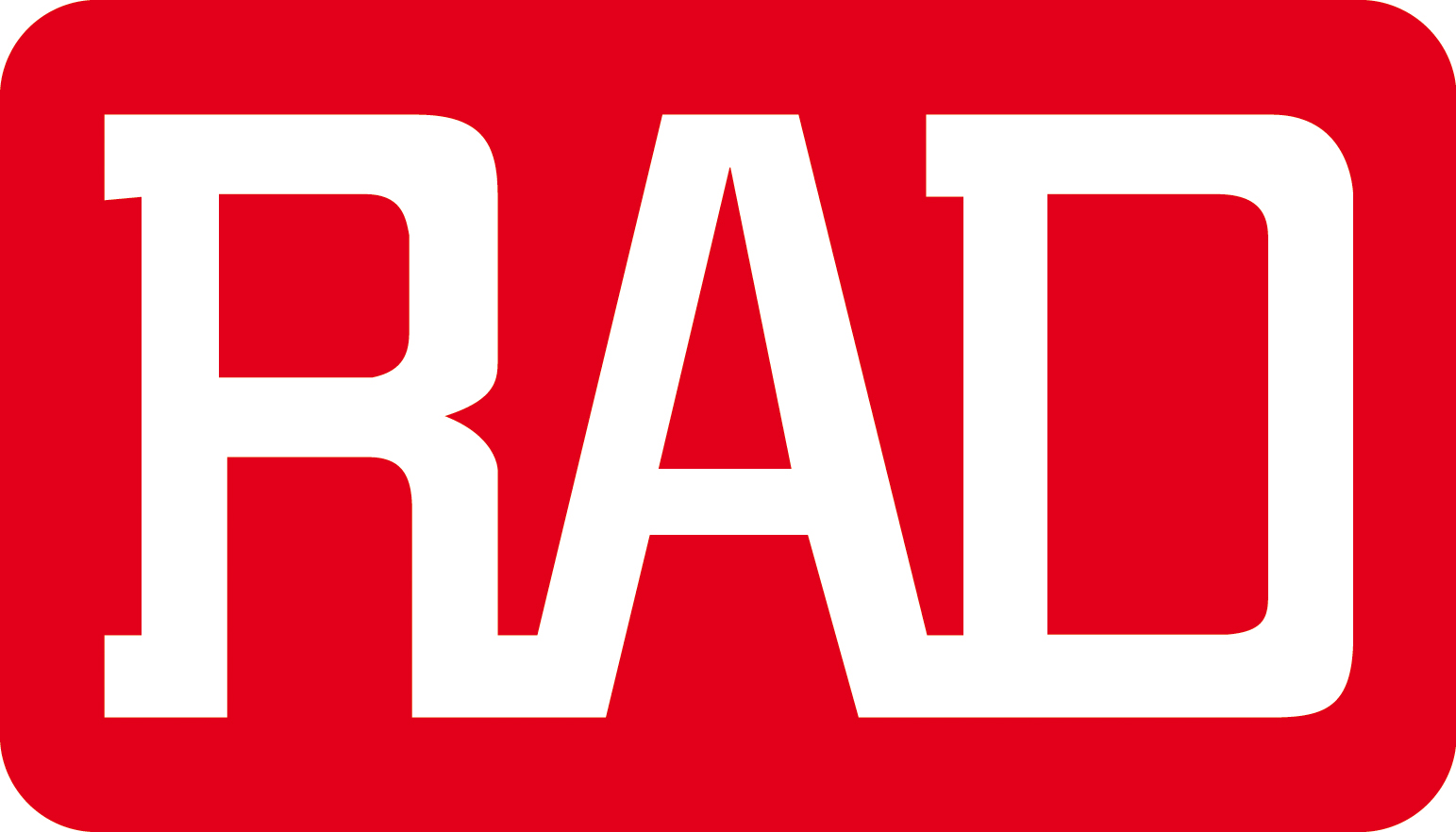
Vmux-2120 E1 / T1 Universal Voice Compression Gateway

RAD's Vmux-2120 Universal Voice Compression Gateway Efficiently transmitting up to 16 E1/T1 voice trunks over TDM, packet-switched and/or 3G networks
Vmux-2120 key points:
Unique TDMoIP multiplexing, with various voice compression algorithms, provides up to 16:1 compression for effective bandwidth utilization
Supports Voice Trunking or 3G media gateway services
Two channelized uplink ports for point-to-multipoint voice trunking applications
Fully transparent to signaling and telephony features
Full redundancy
The Vmux-2120 from RAD is a universal voice compression platform with E1/T1 voice ports, designed for two types of applications:
Voice trunking applications
3G media gateway applications.
The application mode of Vmux-2120 is determined by the software downloaded to the unit. By default, Vmux-2120 is supplied loaded with the voice trunking
application software. Only 1U-high, the RAD Vmux-2120 is a compact unit that can be installed in 19-inch racks.
Vmux-2120 Voice Trunking application
Vmux-2120 as a Voice Trunking Gateway compresses and transports up to 16 E1/T1 voice trunks over E1, T1 or IP links.
Vmux-2120 employs G.723.1, G.729 Annex A, AMR and G.711 compression algorithms, together with RADs unique
TDMoIP multiplexing, to transmit up to 496/384 voice channels, including transparent CAS and CCS, over a single E1,
T1 or IP link. The RAD Vmux-2120 is unique in that it is a single
device able to transmit compressed voice over both TDM and IP networks. It can easily switch between the networks
whenever this may be necessary or convenient. Switching transmission between TDM and
IP links does not require additional investments in equipment. Voice Activity Detection (VAD) and silence
suppression allow Vmux-2120 units to dynamically allocate bandwidth for voice traffic. This results in very efficient
bandwidth usage, allowing more bandwidth for data transport. Vmux-2120 supports relay of Group III fax.
Alternative modem and fax can be
transmitted transparently (voice band data).
RAD Vmux-2120 also supports Data Stream Transfer
Vmux-2120 transfers the following data streams that are not processed as voice:
Multiple HDLC channels Vmux-2120 supports 8 HDLC data streams per E1/T1. The data stream may occupy one or more
timeslots. All CCS protocols, such as SS7, ISDN and QSIG, are supported.
SS7 channels Vmux-2120 supports up to two independent SS7 data streams per E1/T1. Each data stream may occupy one
or more timeslots.
Transparent channels Vmux-2120 features transparent connection between n x 64 channels over IP and TDM networks,
either between two Vmux-2120 units or between Vmux-2120 and other Vmux units. Up to 8 timeslots per E1/T1 link can carry
transparent data.
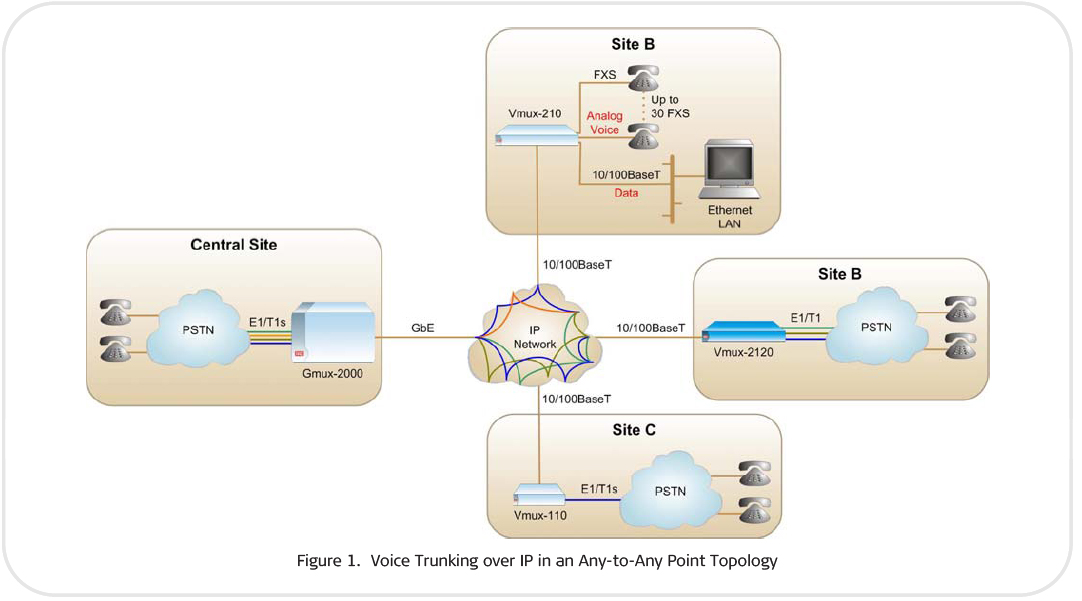
Vmux-2120 features two 10/100BaseT UTP Ethernet ports (Network and User) with optional
auto-negotiation support. The Ethernet ports operate at 10/100 Mbps speed, half- and full-duplex. The Ethernet
interfaces comply with the IEEE 802.3 standard, supporting full auto-negotiation
according to 802.3x flow control for full duplex, and backpressure option for
half duplex. The Ethernet ports can also be used as two redundant uplink ports. In addition to the default Ethernet ports
(one uplink, one user), the device supports two E1/T1 uplinks that may be configured
as redundant to each other and can both function as channelized uplinks. This enables the traffic from 16 user ports to be
compressed to two TDM uplink ports in any flexible configuration, with a compression
rate of 16:1.
Channelized E1 Main Link of the Vmux-2120
Vmux-2120 has a two-port channelized E1/T1 main link. With this option, RAD's Vmux-2120 supports up to two E1/T1 ports for
point-to-multipoint TDM applications (see Figure 2).
Vmux-2120 Bundle Connectivity Check
Vmux-2120 checks voice bundle connectivity using TDMoIP OAM messages.
Q.50 & Bandwidth Management
Vmux-2120 employs two types of bandwidth management methods. The Q.50 protocol can be used with PBXs that
support it. The proprietary Vmux-2120 bandwidth control can be used when the Q.50 protocol is not supported. Bandwidth
management is available only when using link ports.
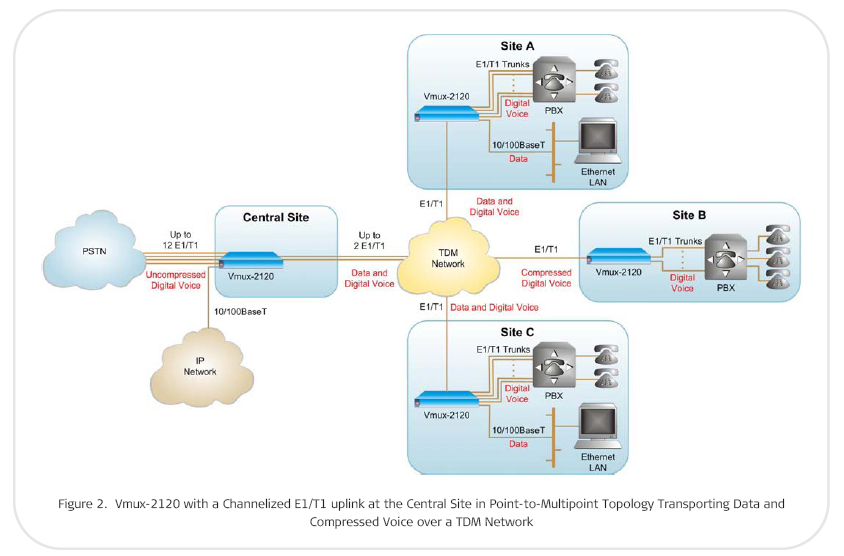
Super Tandem use of RAD Vmux-2120
In super tandem applications (see Figure 4), where calls are routed through several Vmux-2120 gateways, the
intermediate Vmux-2120 gateways sense that the voice has already been compressed by another Vmux-2120, and
thus do not uncompress and then recompress the data as it passes through them. This feature ensures that voice is
compressed and decompressed only once (at the terminating Vmux-2120 gateways), avoiding voice degradation or delay.
3G MEDIA GATEWAY APPLICATIONS
The fully redundant Vmux-2120 supplies 3G media gateways services, thus enables the operator to avoid 2G MSC forklifts to
support 3G services. The platform is interoperable with the NG-MSC and
softswitches.
Network operators that already use Vmux- 2120 for voice trunking applications (typical of 2G mobile networks) can easily
upgrade their equipment to meet the requirements of 3G mobile networks by downloading, on site, the 3G media
gateway (MG) application software.
Figure 3 shows the integration of Vmux-2120 in a 3G mobile operator network.
Vmux-2120 with the 3G MG application software is a complete media gateway for voice over IP applications with a processing
capacity of 4, 8, 12 or 16 E1/T1.
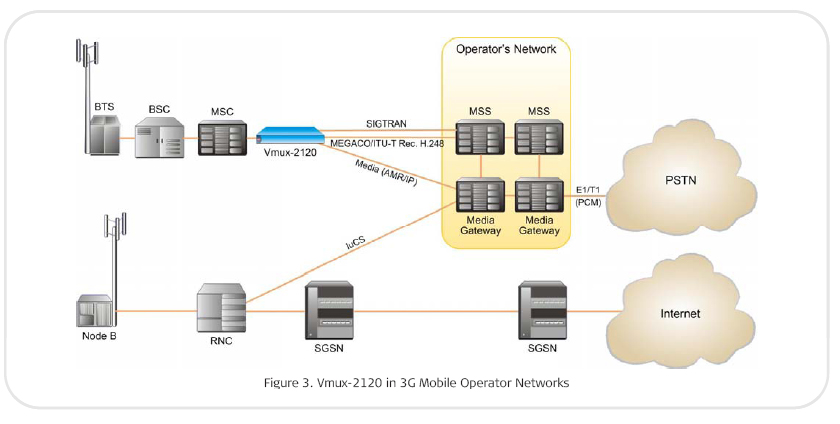
Vmux-2120 can be easily incorporated in networks using the MEGACO/ITU-T Rec. H.248 and SIGTRAN protocols. In such 3G
networks, the call control functions are handled by one or more Media Gateway Controllers
(MGCs) that manage all the voice traffic processing and flows within the network as well as managing the
Vmux-2120.
To enhance availability, the Vmux-2120 supports MGC redundancy, where the user can specify up to four secondary MGCs in
addition to the primary MGC. In addition to the Media Gateway function, Vmux-2120 can also serve as
signaling gateway for Signaling System 7: the signaling gateway function terminates
SS7 Message Transfer Part 2 links and transfers the signaling information over the IP network using Message Transfer
Part 2 User Adaptation (M2UA) per RFC3331 and SCTP per RFC2960, a.k.a SIGTRAN. The maximum signaling
processing capability is five signaling timeslots per platform.
RAD Vmux-2120 VOICE COMPRESSION
You can order the Vmux-2120 unit with 4, 8, 12 or 16 E1 / T1 ports. The device compresses the timeslots received from the
PBX E1/T1 trunks, using standard algorithms and silence suppression. The compressed payload bytes are then
encapsulated into a TDMoIP packet and forwarded to the main link.
Vmux-2120 supports a wide range of voice compression codecs (ITU-T Rec. G.723.1 for 5.3 and 6.4 kbps, and G.729 for 8
kbps), Adaptive Multi-Rate (AMR) narrowband codecs standardized by the European Telecommunications StandardsInstitute (
ETSI ) for GSM cellular systems),
as well as 64 kbps PCM codecs per ITU-T Rec. G.711 (A-law and μ-law).
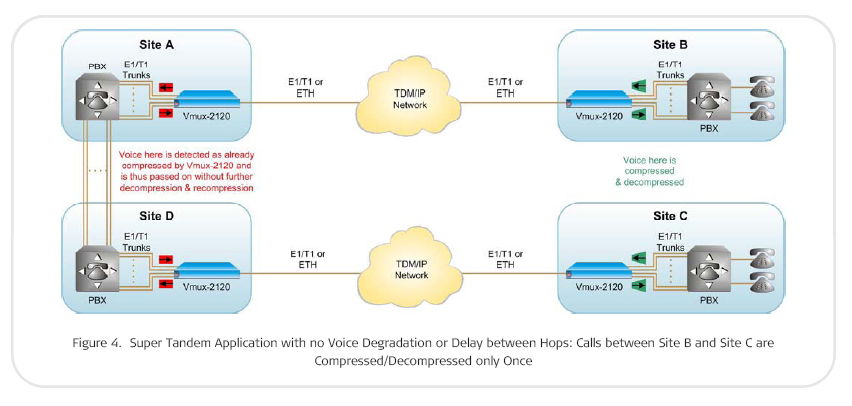
Advanced digital signal processing techniques ensure bandwidth-efficient, highly-reliable service, unaffected by the
use of voice compression. These techniques include silence suppression, built-in echo cancellation of 128 ms per
channel, selectable handling of inband signaling, fax and modems and more.
QOS SUPPORT
The Ethernet ports of the Vmux-2120 comply with all the relevant Ethernet LAN standards, such as
IEEE 802.3 and 802.3u. They provide reliable, high Quality of Service (QoS), by optional VLAN tagging and priority labeling
according to IEEE 802.1D&Q.
The user can configure the Type of Service (ToS) of the outgoing IP packets. This
allows an en-route Layer 3 router or switch that supports ToS (or Diffserv), to give higher priority to Vmux-2120 IP traffic
for delay-sensitive applications.
An assigned, IANA-registered UDP socket number for TDMoIP packets simplifies flow
classification through switches and routers. To transfer voice as well as 10/100 Mbps
Ethernet data over an uplink with limited bandwidth (such as for satellite applications), the ingress data rate on both
Ethernet ports is limited to one of several values between 128 kbps and 8 Mbps.
SYSTEM CLOCK
The clock propagation feature gives the user the flexibility to choose between two
different clock modes. You can either define a separate clock for each TDM port or synchronize all the connected TDM
systems by defining one system clock from one original source.
In addition, a backup source may be configured for the system clock, the Fallback clock. This means that you can
configure several links as clock sources on same priority level. Any of the connected
links can provide the system clock source. The backup system is used only when there are no
functioning links at the master system.
MANAGEMENT
Vmux-2120 can be configured and monitored via a local ASCII terminal, Telnet or RADview (RADs network management
system).
All Vmux-2120 operating parameters are configured using simple, menu-based software. Upgrade or backup software can
be uploaded and downloaded via TFTP. Since Vmux-2120 internal control unit has its own IP address, the Ethernet port can
also be used for connecting to management systems running over Ethernet networks. Management systems
connected to one units Ethernet port can also manage a remote unit, inband (see
Figure 4).
The LAN traffic connected to the Ethernet port can be inhibited to prevent LAN data
from monopolizing the TDM link bandwidth and disrupting voice traffic. This ensures that the link bandwidth will
be utilized for voice (and optionally management) traffic only.
For system security, Vmux-2120 provides three different levels of users: Monitor,
Technician and Administrator. Up to 20 different usernames with passwords can be defined.
DIAGNOSTICS
Vmux-2120 features local (internal) and remote (external) loopbacks on E1 links.
The user can also perform tone injection towards the local PBX. In addition, a ping
utility is included to confirm IP connectivity to remote units.
FULLY REDUNDANT SYSTEM
Thanks to its redundant main board and redundant power supplies, the 1U high platform complies with the most stringent
carrier-grade requirements. The system enables hot-standby, hot-swappable card redundancy mode of work.
Furthermore the redundant main board enables hitless software upgrade.
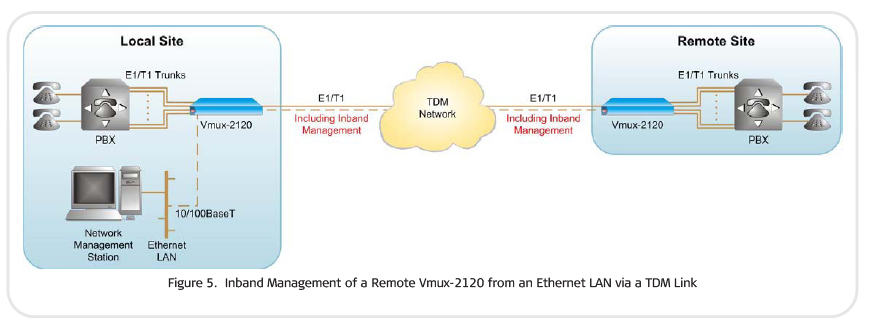
UPLINK REDUNDANCY
The Uplink Redundancy feature enables you to configure the two TDM and the two Ethernet uplinks in any pattern of
redundancy to ensure extended backup for the uplink channels. Uplink Redundancy is reached by applying
BFD (Bi-directional Forwarding Detection), a mechanism that provides low overhead,
short duration, detection of failures in the path between two engines.

INVEST-AS-YOU-GROW WITH THE VMUX-2120
Vmux-2120 can be ordered with only some of the voice ports activated. Licenses may be added to open unused
ports at any given time, enabling easy future expansion.
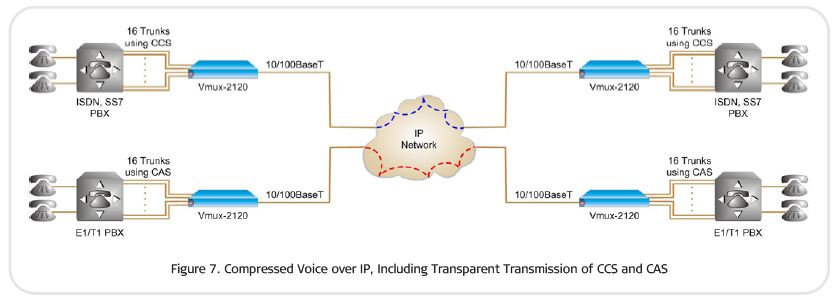
Vmux-2120 product data sheet (pdf)
Commonly ordered:
VMUX-2120/ACR/VC/16E1/4SK
VMUX-2120/ACR/VC/16E1/8SK
VMUX-2120/ACR/VC/16T1
VMUX-2120/ACR/VC/16T1/12SK
VMUX-2120/ACR/VC/16T1/2SK
VMUX-2120/ACR/VC/16T1/4SK
VMUX-2120/ACR/VC/16T1/8SK
VMUX-2120/DCR/VC/16T1
VMUX-2120-LIC/E1/4SK
VMUX-2120-LIC/E1/8SK
VMUX-2120-LIC/T1/2SK
VMUX-2120-LIC/T1/8SK